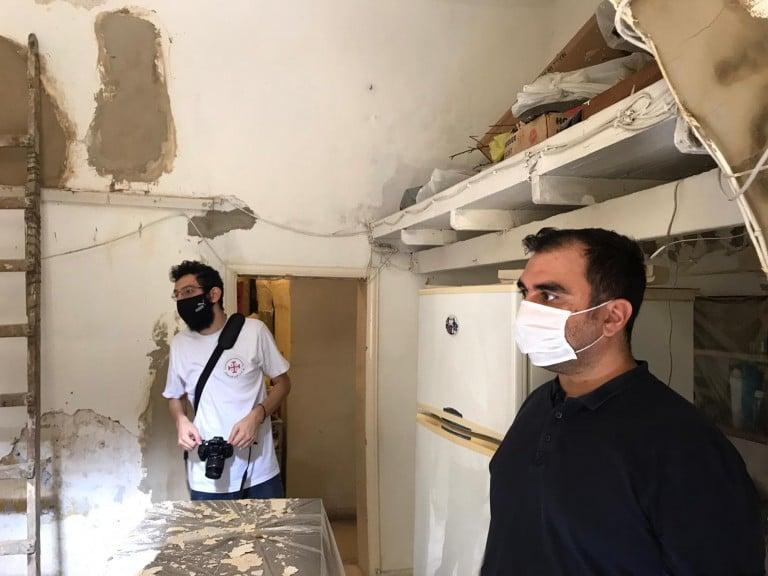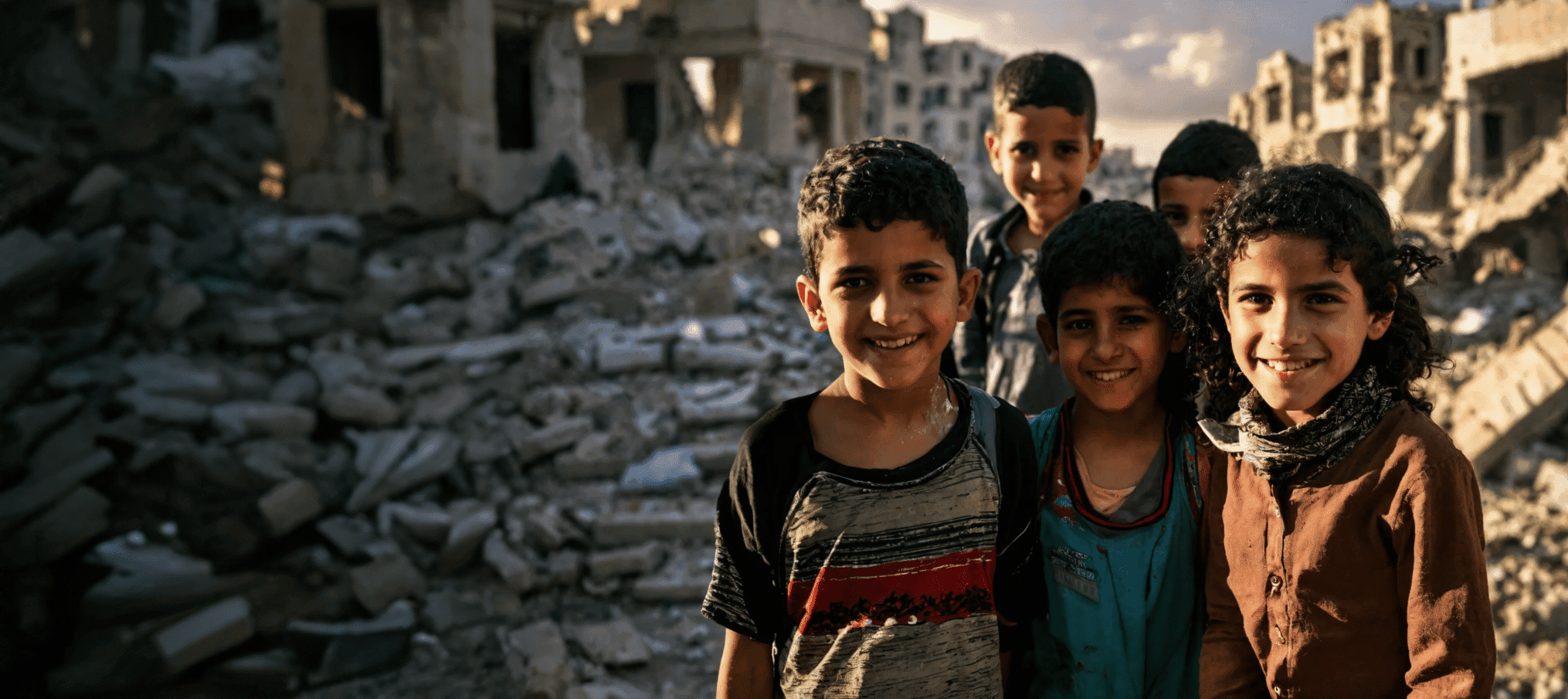A city destroyed, a city on its knees. We are in Beriut. Rubble on both sides of the road along the harbour streets. The director of Pro Terra Sancta Tommaso Saltini and Giacomo Gentile, responsible for the projects in Lebanon and Syria, led by Father Firas Lufti, walk along some streets of the Christian quarter of Gemmayzeh in Beirut. They show us the images from their mobile phone. The show is bleak. We observe with them the tangible damage caused by the tremendous explosion on 4 August.
The detonation of the badly guarded ammonium deposit at the city's port caused the disaster whose images we all have imprinted in our minds. Buildings collapsed, roofs fell, entire buildings without doors and windows within a 20 km radius of the epicentre. "300,000 families have been left homeless," explains Father Firas, "and we are on the verge of winter, if you can't fix the houses in time, the families can't get home. "Many shops have closed - Giacomo intervenes - where once the neighbourhood was very busy, especially in the evening, and today nobody can be seen". The explosion has dealt the definitive blow to the Lebanese economy, which is already deeply in crisis. The economic crisis that had brought so many demonstrators to the square in 2019 has worsened considerably. The pandemic and the explosion did the rest. 50% of the Lebanese population lives below the poverty line.
This crisis has further tested the middle class. "A very young boy, a physics student, had to take his father's car to be a taxi driver during the day and work in a shopping mall in the evening to pay for university ($400 a month). His family - explains Giacomo - can't pay the university fees and so, if he wants to even dream in the future, he has to work all day every day, and study during breaks". Among the people who are helped there is also Marie: a widow with a dependent child, they were at the supermarket together while the house was completely destroyed by the explosion. And the worst would come later. "When I went back to work I was fired because my company was also in a serious economic condition after what had happened. In a week I lost my house and job, and I have my daughter to support". Tommaso, Giacomo and Firas reached the Franciscan friary, the centre of the pastoral activity of the Custody of the Holy Land.
It too was seriously damaged by the explosion. The Minister of the Province of St. Paul Father Firas points out: "The convent stands in what was the first theatre in Beirut: an ancient building of great historical value. Thanks to the support of donors we were able to repair at least a first part of it". The main entrance is still uninhabitable. We follow them into the courtyard of the convent where the help centre is located.
A few days after the disaster, a post was set up where families can go to ask for help. Medicines, meals and basic necessities are distributed here. "Today we helped 60 families. In total we have supported more than 200 families so far," explains Fadi. We also get to know the other young volunteers who, like Fadi, immediately made themselves available to the Franciscans: Stephanie, a young pharmacist, Paula, George and many other university students. For Father Firas they are a help from Providence: "The Lord is the one who sends you good people, these young people are animated by the Franciscan spirit. The spirit with which we work with the staff and people follows the Pope's encyclical "All Brothers". Let us help with joy and with bright eyes".
Without the participation of the volunteers and the support of the many donors who have worked since the early moments of the crisis to help, all this would not have been possible. “The list of those seeking help is growing, adds the director, Tommaso Saltini, and the families have learned that the Franciscans are offering this service with us and many are coming to ask for it”. Giacomo explains that this explosion has probably brought to light situations of poverty that were previously hidden and dormant: "Stephanie told us that she had no idea there were so many poor people in the neighbourhood. This is an alarming fact, but we also want to read it as an opportunity to really help, create bonds and network among the inhabitants".


















